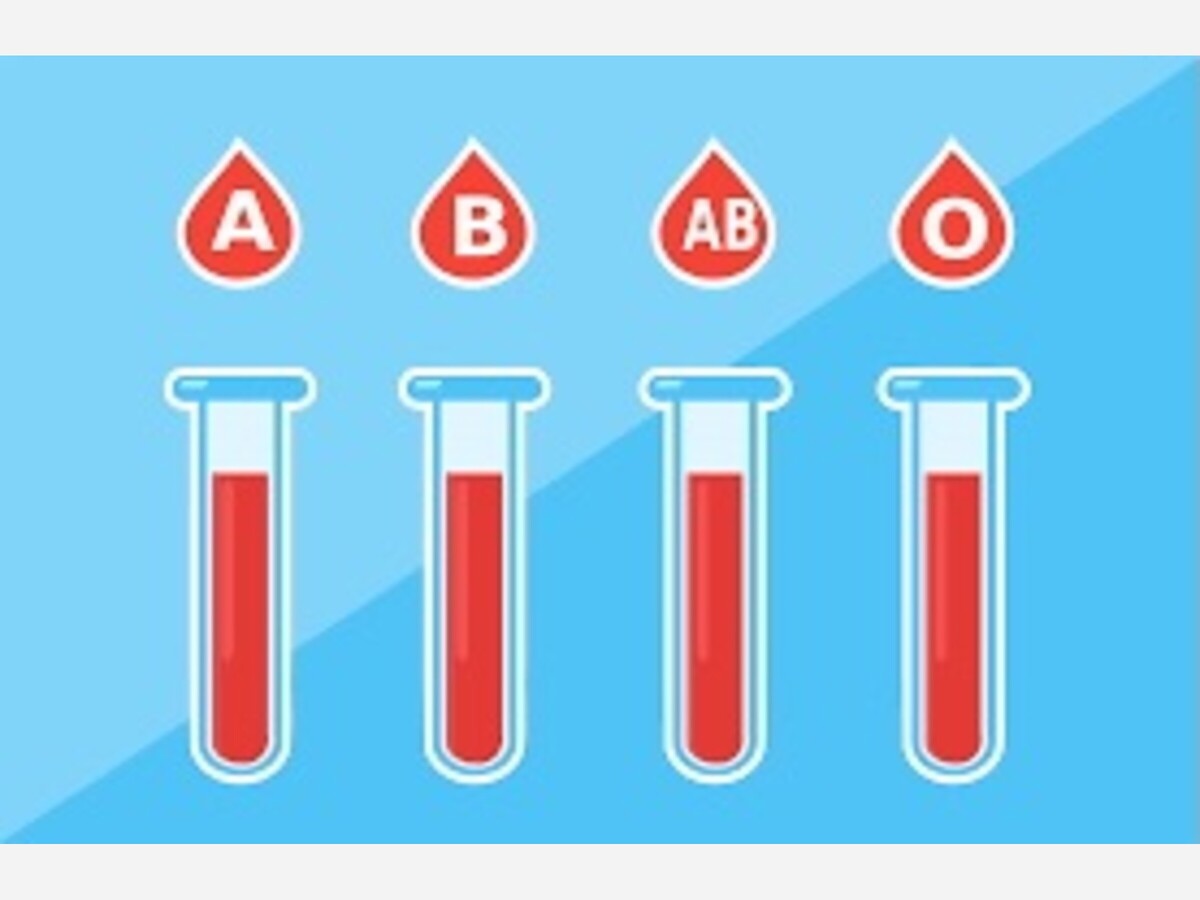Image

Labcorp, a global life sciences company that provides a range of science and health services, including diagnostic blood testing, periodicall issues informative newsletters. A recent one shared some interesting information about connections between blood types and certain specific illnesses.
There are eight major blood types:
The newsletter states, "Your blood type is more than just a label; it’s important health information. Knowing your blood type is important for when you need a transfusion or when you want to donate blood, but did you know it can reveal even more about your health, including your risk for certain diseases? Take control of your health and learn what clues your blood type might reveal."
Research has determined that Type O positive blood is the most common; nearly 37% of the U.S. population has it. On the other hand, only 7% of the population has Type O negative blood. Type O negative blood is considered the “universal red cell donor” blood type. This means anyone—no matter their blood type—can receive Type O negative blood in an emergency.
Regarding cardiovascular disease, Labcorp states, "People with blood types A, B or AB are at a slightly higher risk of developing heart disease than those with Type O. This is because their blood contains antigens that can make it more likely for blood clots to form. While the increased risk of heart attack is small (8%), the risk of blood clotting and deep vein thrombosis is much higher (over 50%), according to one study."
Studies also show connections between cancer and blood type. "People with Type A blood seem to have a slightly higher chance of developing stomach cancer than people with Type O blood. Similarly, a study revealed that while the overall risk is relatively low, individuals with Type O blood were less likely to develop pancreatic cancer than people with A, B, or AB blood types."
"People with A, B, or AB blood types may also have a higher risk for lung, breast, colorectal, prostate, liver and cervical cancers. Researchers are still trying to understand exactly how blood type and these cancers are connected."
Lastly, the newsletter discusses the link between blood type and stroke: "About 4 out of 5 strokes are preventable, and there are genetic factors that can put you at an increased risk. People with Type A blood have a higher risk for stroke than those with Type O blood. A recent study found that patients who had an early stroke (before age 60) were more likely to have Type A blood, while those with Type O blood had a 12% lower risk of having a stroke."
In all instances, Labcorp suggests that if your blood type seemingly makes you more prone to a particular illness, it would be good to discuss symptoms of that illness and a health plan to diminish your likelihood of developing it, with your doctor.
[Editor's note -- The Boyertown Area Expression is sharing this information because it comes from a local, well-respected biosciences company that is basing the information on research. The Expression is not responsible for the truthfulness or for any outcomes related to these claims.]